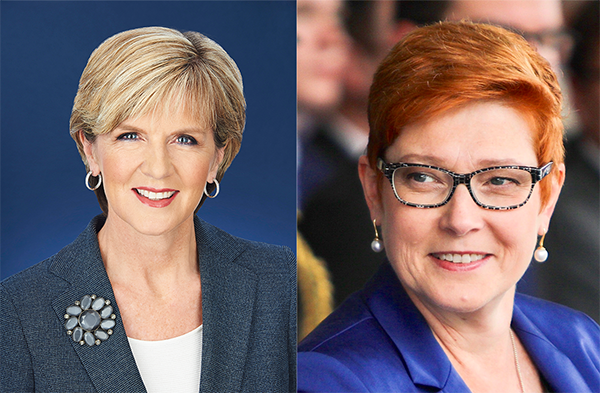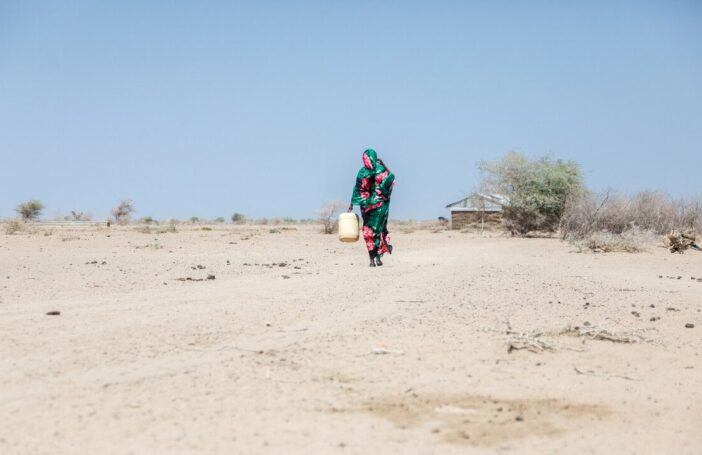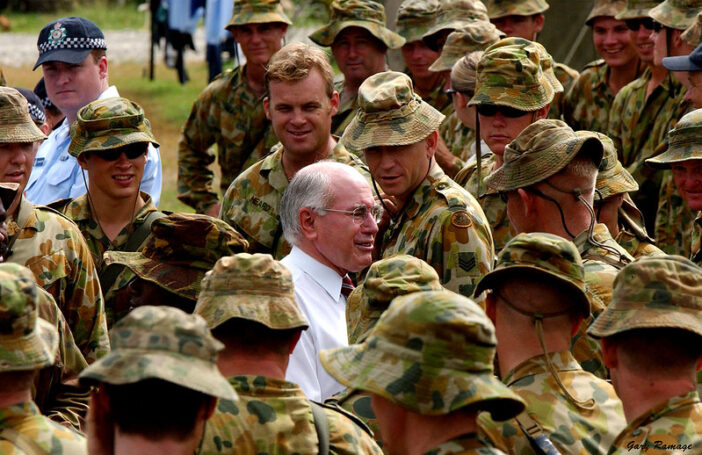In yesterday’s edition of The Australian, David Crowe reported that the “leading option” the Government is considering to help “cover the cost of a fight against terrorism” is to extend the freeze on the aid budget. Crowe reported that these discussions are ongoing at the top levels of the Government:
“Cabinet ministers are canvassing an extension to the freeze in the annual aid increase, perhaps for another two years, so that outlays would start growing again only from 2018-19.”
Bishop’s response was swift. On ABC Radio, she refuted the claims, saying that there had been “no discussion in Cabinet along those lines” and adding that “we will abide by the commitments we made in relation to foreign aid”. The Prime Minister seemed to say the same thing, though less emphatically, during a press conference in Melbourne.
If, despite Bishop’s rebuttal, cuts were to be made as Crowe reported, this would represent the third time in a little over a year that the Coalition government had announced reductions to the aid budget.
The first cut was announced on 5th September 2013, just two days before the federal election (see Devpolicy’s coverage here and here). The Coalition’s position at that point was to promise annual increases in line with inflation, relative (as only became apparent some time later) to a 2012-13 baseline. The cut was unexpected: then Shadow Foreign Affairs Minister Julie Bishop had signalled she would make changes to Australia’s aid policy – by giving primacy to ‘economic diplomacy’, for example – but had also committed, repeatedly, that Australian aid would grow toward 0.5% of GNI.
In the second cut, delivered in the 2014 Budget, foreign aid was frozen at $5 billion in 2014-15 and 2015-16, with subsequent growth pegged to inflation. As Stephen Howes explained here, the effect of this cut was a reduction in aid by almost 10% in real terms by 2015-16, relative to the Coalition’s chosen base year of 2012-13.
If the aid budget freeze were in fact extended, the mid-year budget update would hold the aid budget at $5 billion in 2016-17 and 2017-18. Assuming annual inflation of 2.5 per cent, the effect of this would be a 14% real cut relative to the 2012-13 base.
This potential third cut to the aid budget is smaller in volume than the two earlier ones but would be more damaging for Bishop’s credibility. Until now, Bishop has deftly navigated the difficult task of reassuring the international development community of her development bona fides, despite dismantling AusAID, substantially reorienting the policy direction of the aid program (introducing the ‘new aid paradigm’) and overseeing large cuts in expenditure. Bishop’s focus on improving aid quality has been well received, and her passion for development in Papua New Guinea and promoting women’s leadership in the Pacific has resonated. But further cuts would open Bishop up to the charge she has levelled against Labor: that it didn’t match its rhetoric when it came to its spending commitments.
It could be that, as Acting CEO of Save the Children Mat Tinkler suggested this morning, the conflicting reports about the Government’s spending intentions are intentional. Tinkler told ABC radio that the Government might in fact be ‘flying a kite’ in an attempt to understand whether the public will stomach further cuts to aid. Having made managing the deficit a central component of their credibility with the electorate, and now being committed to military involvement against ISIS, it’s likely that the Prime Minister and the Treasurer are amenable to cutting aid. (The Prime Minister’s press conference remark that aid growth will be linked “essentially to CPI in coming years” certainly leaves him some wriggle room.) There is little to lose politically, as the response to the last two cuts have shown. 64% of voters supported the decision to freeze the aid budget.
For Bishop though, the stakes are higher and the political calculus not as clear cut. As analysts reviewed the performance of the Abbott government a year after taking office, Bishop’s performance was uniformly praised. Her popularity was regularly noted. The international development community may not be electorally powerful, but its ongoing support is valuable in advancing her development policy agenda. And the loss of its confidence could erode her credibility in the broader community, regardless of people’s views about the subject at hand. While the NGOs have already declared victory in yesterday’s skirmish, it would be naïve to think there will no threats to the aid budget between now and next May. At least Bishop’s chances of resisting them are surely better now than a year ago.





While Julie Bishop seems certain about no game change for the aid budget, the Minister for Finance seems less committal.
This was Mathias Cormann on Sky this weekend (transcript here).
“PAUL KELLY: Okay if we look at the foreign aid budget, to what extent do you think there’s capacity for more savings in foreign aid?
MATHIAS CORMANN: Between now and the release of the Mid-Year Economic and Fiscal Outlook we will be looking right across Government for opportunities for additional savings in order to make up for the additional expenditure or the cost of the delayed savings. Our commitment is not to add to the deficit, not to add to debt and as such to the extent that there is new spending or lower savings then we will have to find ways across Government, across the whole of the Government, to make up that ground.”
Great article Ben, I was reading this article the other day which highlights the need for education as a crucial part of any ‘arsenal’. I think our governments need to seriously consider the central role of aid in this area. Books are cheaper than bombs and tend to have better effect. I for one pray and hope they realise that aid is not even just strategically important but central important as part of our responsibility globally.